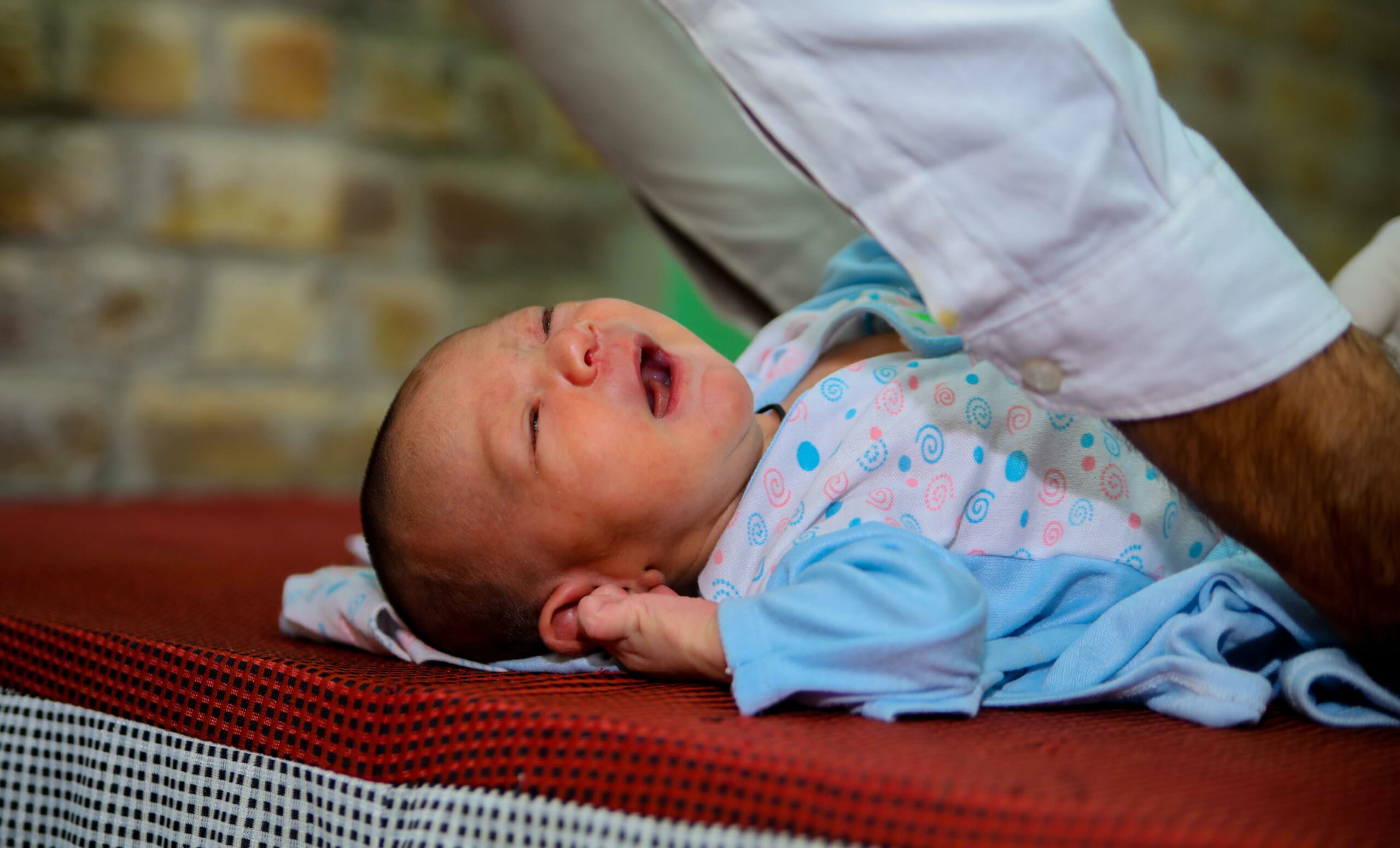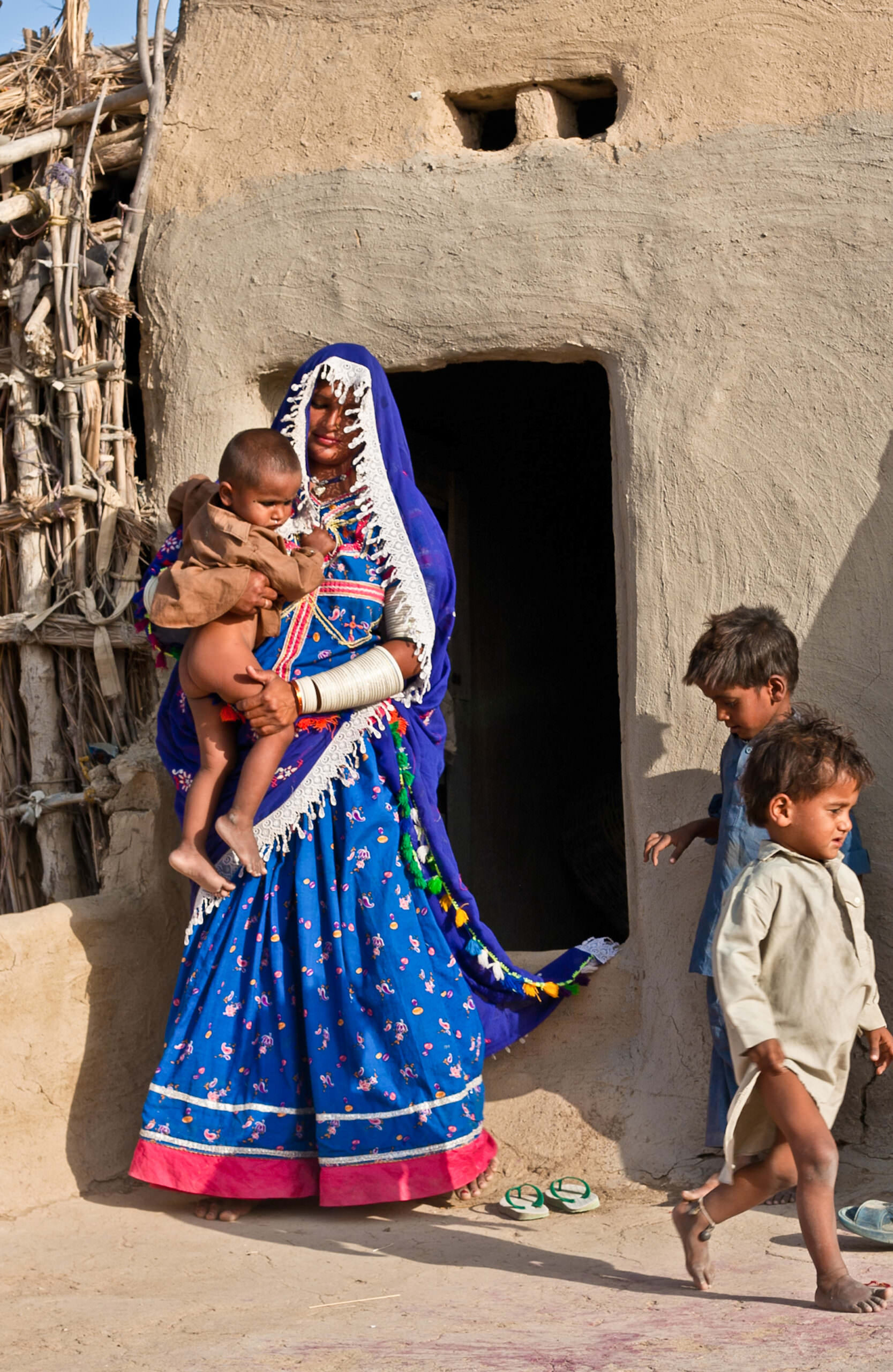Exposure to toxic levels of stress and violence in pregnancy or early life can have lasting health impacts. In Pakistan, where the under-five mortality rate is 67 deaths per 1,000 live birth—among the highest in the world—researchers Alexandra Harrison, MD, and Elizabeth Levey, MD, both Assistant Professors of Psychiatry at Harvard Medical School, are exploring ways to reverse stress levels and their impacts.
As 2022 LMSAI faculty grant winners, their project designs a comprehensive training system for lady health workers (LHW), a common practice across low-resource areas of South Asia that provides pre- and postnatal care. Dr. Harrison and Dr. Leavey’s training system, Building Baby Brains (BBB), equips the LHW with the tools they need to support the infant-caregiver relationship, with the goal of ultimately increasing the neurodevelopment—and decreasing the mortality—of children in rural Pakistan. We spoke with Dr. Levey for an update on their project.
Mittal Institute: Could you share some of your motivations for the project – what led you towards this research?
Elizabeth Levey: As a child and adolescent psychiatrist, I believe strongly in early intervention. The earlier we can intervene, the more impact we can have. Perinatal interventions offer the opportunity to work with vulnerable families to prevent adverse exposures before they negatively impact child development.

Alexandra Harrison, MD, and Elizabeth Levey, MD, both Assistant Professors of Psychiatry at Harvard Medical School.
Mittal Institute: Why is this project so critical, and how does early exposure to toxic levels of stress harm both mother and child?
Elizabeth Levey: Brain plasticity is greatest during the prenatal period and early infancy. Glucocorticoid exposure during this period can alter the volume of certain brain regions, and it impacts glucocorticoid sensitivity across the lifespan. Prenatal exposure to maternal stressful life events and maternal mental illness have demonstrated effects on cognition and mental health into adulthood, as well as changes in brain microstructure. Maternal anxiety or depression during pregnancy is associated with decreased performance on executive functioning tasks, measuring impulsivity and attention. Maternal anxiety predicted poorer working memory, and maternal depression also predicted lower IQ. Maternal depression during pregnancy also predicted offspring depression and anxiety in adulthood.
Resilience is particularly important in an environment where children are likely to face adverse exposures. The capacity for resilience begins before birth and continues to develop across the life course. Stress during pregnancy impacts neuroendocrine development in utero, which is critical to the development of regulatory capacities in infancy and early childhood. After birth, the development of resilience goes hand in hand with relationship development. Sensitive and consistent caregiving in infancy continues to support the development of affect regulation, which is a key building block for resilience.
Mittal Institute: Why did you choose the Punjab province in Pakistan as the project’s setting?
Elizabeth Levey: Pakistan’s under-five mortality rate is 67 deaths per 1,000 live births, the 22nd highest out of 193 countries, and 37% of children experience stunting, severe growth restriction associated with malnutrition. South Punjab is a rural area with limited resources. We are working with a team of Pakistani physicians who have contacts at Nishtar Medical University, and we are collaborating with researchers there.

Newborn in Faisalabad, Pakistan | By Assad Tanoli.
Mittal Institute: Can you share a bit about what the Building Baby Brains training looks like for lady health workers? What are they learning and who is instructing them?
Elizabeth Levey: BBB training attempts to strengthen infant resiliency and support maternal mental health by filling a knowledge gap among LHWs, whose primary training focuses on immunization and nutrition. BBB includes current scientific information about pregnancy, the transition to parenthood, infant development, and a clinical method for strengthening the infant-parent relationship, Thula Sana (Cooper et al., 2009; Valades et al., 2021). Thula Sana begins with prenatal visits focusing on the mother’s health and on helping her prepare for delivery and the postnatal period. Postnatal visits involve assessing the baby’s behavior and interactivity through a series of maneuvers eliciting the infant’s strengths and sensitivities, such as demonstrating the infant’s motor strength and responsiveness to the caregiver. In revealing to the mother her infant’s competencies and behavioral cues, the intervention aims to increase the mother’s sensitivity to the baby and strengthen the infant-parent relationship.
In revealing to the mother her infant’s competencies and behavioral cues, the intervention aims to increase the mother’s sensitivity to the baby and strengthen the infant-parent relationship.
The BBB training was conducted in two-hour sessions twice per week over four weeks. BBB training was delivered in the form of remote lectures given by a child psychiatrist in the US (AMH) supported by a Pakistani child psychiatrist practicing in the US, also remote (MZ). An onsite Pakistani pediatrician (SP) also supported the training and provided consecutive translation.

A mother cares for her child in Sindh, Pakistan | By Asian Development Bank.
Mittal Institute: Have you experienced any challenges or opportunities along the way?
Elizabeth Levey: There were a number of unanticipated findings, which suggest opportunities for refining the BBB training for future projects in Pakistan or similar populations. First, although the LHWs were instructed in how to randomize the mothers in their caseload, they sometimes selected mothers of high status in the community whom they thought could influence good practices in other mothers.
Second, when members of the husband’s family were present during data collection, this could inhibit the mother. In some cases, they also sought to influence her responses or wanted to participate themselves.
Third, some mothers were uncomfortable answering questions about trauma. Finally, some mothers were uncomfortable being video recorded during the feeding situation.
Mittal Institute: What is next for your research?
Elizabeth Levey: We will finish collecting data for this pilot intervention so that we can share the findings and hopefully conduct a larger study in the future.
